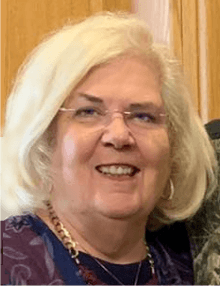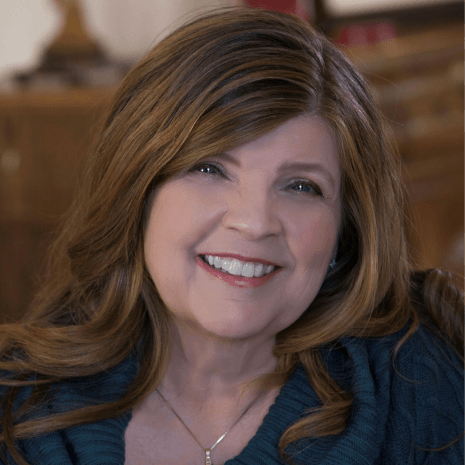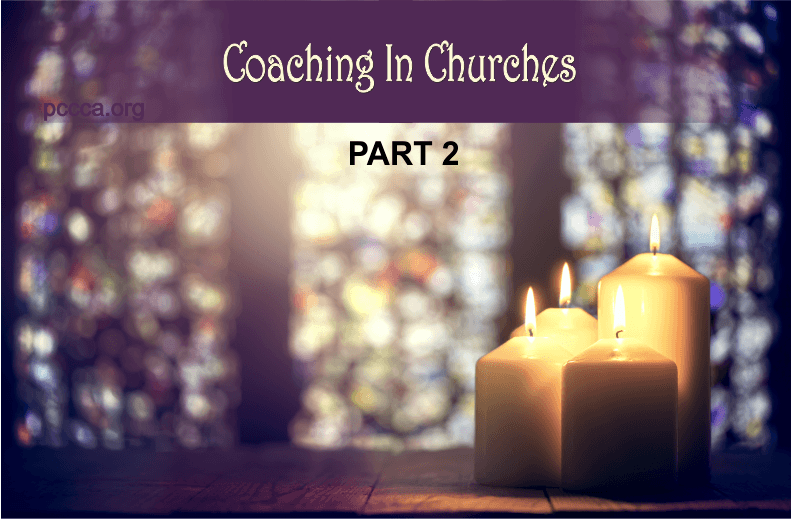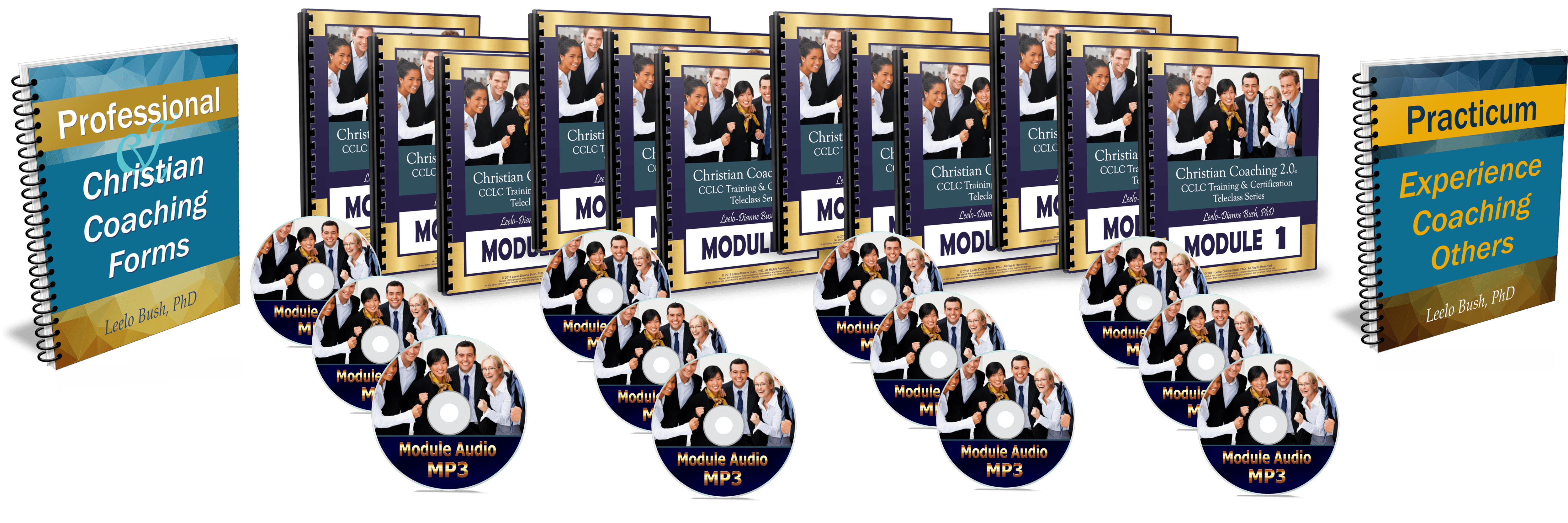Coaching in Churches Part 2:
Everyone Wins
In Part 1 of this series, we looked at the slow growth of coaching in churches and the understandable reluctance for some leaders to add coaching as a service. I also told you about how the PCCCA Christian coaching hybrid developed. If you have not read that post yet, I suggest you read it before reading this article, to give you some more context.
If you want to read it first, just click here.
So let’s fast forward to 2020. Life coaching has gained a lot more momentum and awareness among the public and in churches. Many of our students are coaching actively at their own church and in their community.
But I wanted to make this article a little more personal for you. It is for this reason I sought out a seasoned church leader, who will share her experiences with you directly. You’ll also see a couple quotes from experienced leaders of large churches.
The following was written by Sukie Barker, one of our PCCCA certified coaches. I'll let her tell you about herself and her experiences.
Coaching in Churches
By Sukie Barker, CSRC, Atlanta, GA, Sukie.org
Why in the world does a small to medium size church need to add another staff member? Much less someone who could do what one of our members or staff could do? Good question! I am so glad that you asked.

Sukie Barker, CSRC
My husband is a pastor and we have served in medium to small churches for over 30 years. Would I recommend hiring a life coach? ….definitely, yes!
The ideal, properly trained life coach brings a skill set that is on one side unique to them alone and on the other, exactly the same tone as most of the New Testament epistles. A life coach, just like Paul, is goal oriented.
“I beseech you therefore brethren, by the mercies of God to present your bodies a living sacrifice, holy and acceptable to God, which is your reasonable service. And be ye not conformed to this world but be ye transformed by the renewing of your minds, that ye may prove what is that good, and acceptable and perfect, will of God” Romans 12:1-2. Paul spells out what the New Testament church needed to do and put them on a pathway to get there.
What is a life coaching? A coaching relationship is a supportive, client-driven and coach-supported partnership. The client has needs/issues that they want changed in their life and they are willing to include another, objective person, the coach. Together the client and coach come up with the specific goal that will be addressed and the coach then helps the client lay out a pathway to the goal that the client wishes to achieve.
We all know that the presenting issue is often not the real issue that needs to be discussed. Life coaches, in partnership with the client, then help the client come up with ways to achieve those goals. This can be time consuming and may take months of dedication on both the part of the parishioner and the life coach. Not many pastors of small to medium churches have the time to delve into each parishioner’s situation and unravel these meaningful goals.
“As to the benefits of churches having coaches - one of the things we were able to accomplish with coaches at Richland Lutheran was supporting people from a biblical perspective without always relying on the pastor to personally provide the support. A trained life coach can be highly effective in these cases.

Another benefit is in settings where there may only be a male pastor and a female client may prefer support from another female. Having a designated female life coach or trained lay person available to minister in that way just gives the ministry more options.”
Debbie Lee Stankovich, Certified Master Christian Life Coach & Counselor, Coach Trainer at PCCCA
Retired Church Administrator, Richland, Washington State
Now residing near Seattle, WA
In order for this to work effectively, there needs to be clear, obtainable goals along with follow-up. I am not sure about you but with every situation we were in, my husband did not physically have the time to follow-up on every goal that was agreed upon.
Delegating to another member of our congregation was most of the time, not a good choice. Often, a peer, following up on stated goals comes across as overbearing, while a coach is seen at the outset as someone who is there, not necessarily as a best friend but as someone who can encourage the congregant in their goals.
Can’t all this be accomplished with counseling? Unfortunately not or not as well in my view. Counseling often diagnoses a problem but can cause the client to walk away from the sessions with a label on the problem and a shrugged shoulder saying, “Now, I have a name for my problem,” without fixing the situation.
Coaching on the other hand, dissects the issue, looks for solutions, develops a plan, divides the plan into easily doable steps, hence gives the client confidence that they are capable of reaching the goals to deal with their troublesome situation.
Can I tell you a firsthand experience about merely diagnosing the problem? I am dyslexic, yes, terribly dyslexic. I can also read upside down and backwards. I can write a note to you that you will have to hold in front of a mirror to decipher. As a young person, I thought this was a special gifting that I had. I had no idea that it was any kind of a learning disability. I was not diagnosed in my childhood.

My Daddy was a civil engineer. He also taught math in “night school” (as they called it then). He could do math problems in a snap that would take most people several pages to work out. When he was a little older, he passed the test to become a licensed, registered civil engineer, without one hour of higher education!
Guess what? Daddy was dyslexic. He never knew it was a disability. He taught me that you could do tricks that not many others could not do. Dad taught me to put a pillowcase on inside out which made perfect sense to me. After 48 years, my husband still shakes his head in confusion. Rather than being diagnosed as having a learning disability and being told that is the way I was made, my Daddy coached me in goals to help me through the problem. Daddy was a natural life coach.
By the way, since becoming an adult, I have learned that dyslexia runs rampant in our family. I have a relative who became an outstanding judge. He was dyslexic. I also have another relative who was diagnosed with dyslexia early in life and has used the diagnosis as a crutch ever since.
If a coaching approach can help dyslexia, imagine what it could do for situational depression, grief, relationships or other life situations. Coaching truly gets you out of the label and into living, by gaining fresh perspectives and creating effective plans of action.
As you’ve probably heard many times, a new church staff member can increase the income of your church to pay for their salary. This is true when you add a life coach. That statistic alone could seem cold and hard. I encourage you to consider the times we are living in, where there are more and more needs for not only encouragement but real help with a direction or pathway to get out of the situation that the person is dealing with.
A huge advantage to using a life coach is that coaching services can be offered virtually or by phone thereby keeping the potential trauma associated to candid discussions and opening up away from the church walls. In the times we are living in, folks are used to virtual appointments and services from a distance.
"I chose the program at PCCCA for several reasons. The first reason is to advance my skills. I am a Christian and I love the Lord and I believe that life coaching with a master's degree in mental health and wellness topped with a certification in Christian counseling ties everything together for my purpose that God has given me.

Since I have been enrolled in the program, I've received and learned a lot of information that just puts everything into perspective.
I am currently affiliated with a church and am part of the leadership team. My church has an academy for children on the premises. This certification will help me (especially during the black lives movement) going forward to help children who have experienced trauma such as myself, to process it in a way that will benefit them in a future, understand the word of God and how God loves them."
Hilda Avery, Lynnwood, Washington State
Another plus to offering life coaching services is if a pastor has firsthand knowledge of sensitive issues in a person’s life then sometimes the congregant begins to think the pastor is “airing their dirty laundry” or “always preaching directly to me”. This usually ends up with dissatisfaction and ultimately that family leaving the church … if you are lucky. We both know that a dissatisfied parishioner usually takes others with them when they leave.
On the other hand, if you as a pastor or staff member can direct your parishioner to a life coach who can help guide them through the steps they need to take to improve their situation, you have made a loyal parishioner for a long time. That person is often so glad to have their “burdens” lifted and get on a clear path that they bring others into the congregation because of their satisfaction.
Offering life coaching services to the community does much the same thing. Once someone has received an invaluable benefit, they are likely to attend your church and bring family and friends as well.
As for costs, I would highly recommend having a life coach on call and possibly the church subsidizing the cost for a set number of sessions. This could also be done on a sliding scale (with household income information gathered within an application). Although there are many variables to each situation and the goals needed, it seems to me that if there are a set number of sessions available, it keeps the client and the life coach accountable.
If you haven’t done so yet, I would humbly suggest that you try out a life coach. See what they believe. You would want a life coach whose education has been biblically sound. I would also recommend that you check out where they have been taught. My recommendation would be the Christian Life Coach program at PCCCA. Leelo Bush, PhD is a solid Christian and this is reflected in her curriculum. I don’t think you could go wrong with someone who graduated from her Academy.
Final Words from Leelo Bush, PhD
In conclusion, when coaching in churches is done right, everyone wins. The right coach is hired or referred, saving the leadership time and possibly creating additional revenue to support the church. The recipient of coaching is grateful for their life transformation and brings family and friends to the church, helping to build your organization. And most importantly, lives are forever changed. Each changed person positively affects others. And the ripple effect continues.
Thank you to each person who contributed to this series. Don't let it stop here. I'd love to read your comments on this topic. You may post them near the bottom of this page.
© 2020 Leelo Bush PhD, All rights reserved.
Become a Certified Christian Life Coach (CCLC) and
Certified Professional Life Coach (CPLC)
Gain 2 Certifications for completing this 1 course!
WANT TO USE THIS ARTICLE IN YOUR WEBSITE OR NEWSLETTER?
You have Leelo's permission as long as you include the complete copyright statement below:

Leelo Bush Ph.D.
“Leelo Bush, PhD is recognized globally as a Christian Coach training curriculum creator, speaker, show host and innovator as well as a marketplace ministry and training expert. Discover your hidden potential with her FREE 5-Minute Success Predictor Quiz at https://pccca.org"



